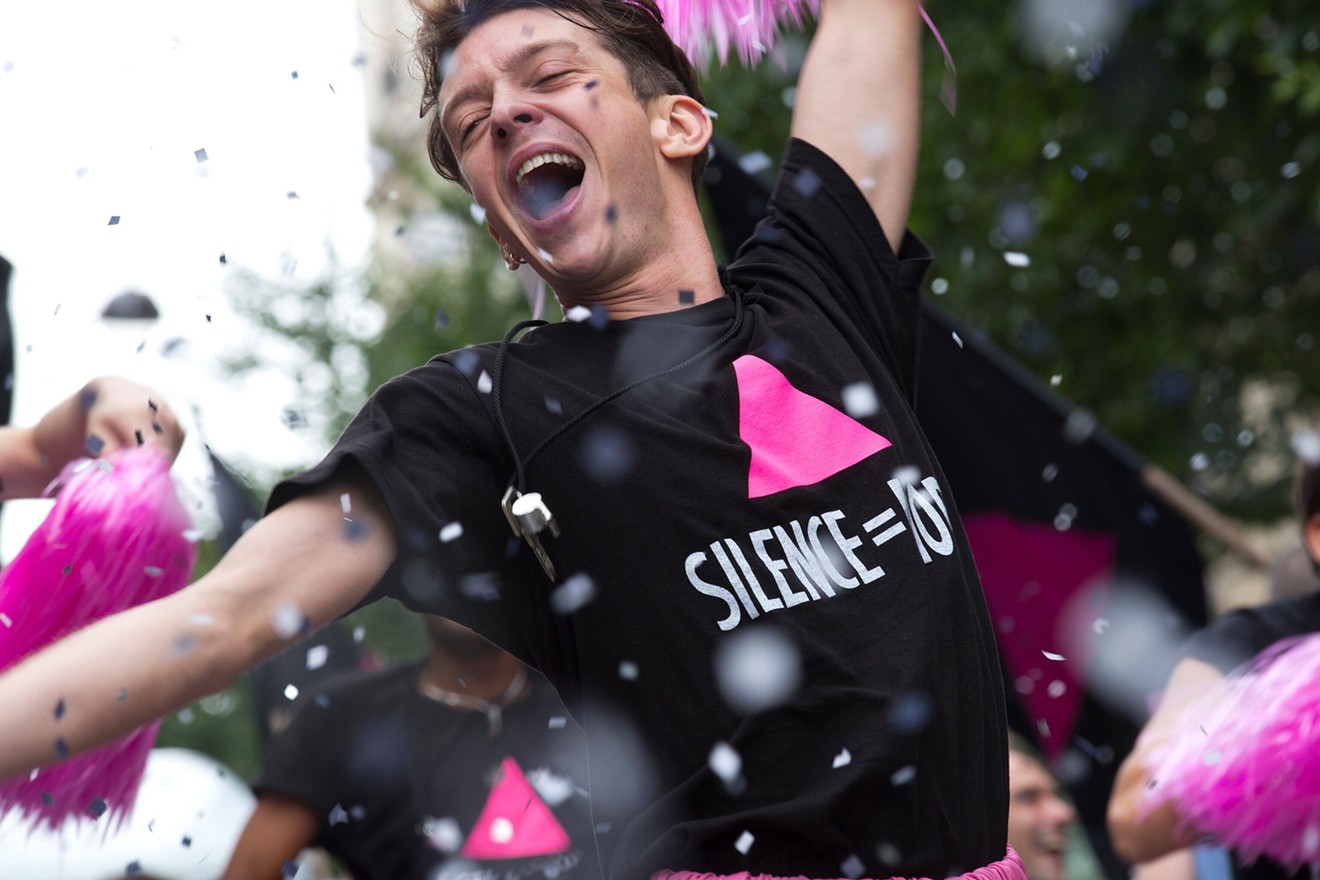One year, back in the early 1990s, an uncle of mine didn’t show up to our family Christmas. I was only 10 and didn’t understand his sudden departure and why nobody would speak of it. A year later, I was at his funeral. He was a playwright and actor in Chicago; to honor him, several of his male friends performed a modern dance routine. Each dancer was muscled and handsome and clad in a solid-white unitard, and I remember wanting to giggle because this wasn’t the kind of memorial service that I, a Catholic girl in Michigan, had become accustomed to. But when the music started — a grand number of cascading crescendos but still mournful all the same — I was transfixed by these men and their movements, as they acted out their grief, leaping with powerful limbs into the air, taking turns catching and lifting one another up into the spotlight, each for one halting moment. My heart pounded. I will never forget those 5 minutes of grace and compassion.
That’s the same feeling I get when I watch Robin Campillo’s profoundly moving AIDS-crisis drama BPM. In the beginning, we’re plopped into a meeting for the Paris chapter of ACT UP, one of the most effective international AIDS-activist organizations during the crisis of the late 1980s and early ’90s. Campillo uses the meeting dynamics — all that riffing and banter — to quickly introduce us to at least 10 or so integral characters. They include Sophie (Adele Haenel), who’s miffed about the way a protest devolved into a public official getting splattered with fake blood and handcuffed to the stage, and the charming/thorny Thibault (Antoine Reinartz), the de facto leader with thickened skin from settling organizational infighting.
For the first third of the film, there’s no clear protagonist. We rove into the POV of activists as they hold demonstrations at the offices of a pharmaceutical giant and in a local school, spattering walls with fake blood and passing out condoms to kids. Campillo presents theme as an indivisible group, working in unison, faltering and then quickly righting their ship, before he focuses the story toward the developing relationship between two men, Nathan (Arnaud Valois) and Sean (Nahuel Perez Biscayart).
Quiet, handsome Nathan is HIV negative, while the boisterous Sean is “posi.” The first night they spend together, Sean reveals that his high school math teacher transmitted the virus to him — it had been Sean’s first time. Nathan, on the other hand, just got lucky. Sean is so very alive in every frame — with every moment to speak, to kiss, to crack a wicked joke seized — and yet we know he will almost certainly die. But Campillo’s focus on these charismatic characters, who bicker constantly but pick one another up the second they fall (sometimes literally), makes their present so thrilling that we don’t focus on what bleak future may await them.
Campillo underscores the immediacy of this story with thumping electronic tracks that play as the characters lose themselves on a darkened dance floor. The director (with additional editors Stephanie Leger and Anita Roth) intercuts this startlingly realistic, almost doc-like story with moments of surreality, as he overlays psychedelic imagery of specks floating in space on top of these dancing revelers. Eventually, we realize that what’s depicted in the images is the microscopic movement of the AIDS virus attaching itself to human cells — life is literally stolen from these people as they dance. This film, co-written by former ACT UP-Paris president Philippe Mangeot, exposes the electricity of living in that moment of time for the gay community, where amid the apathy and outright hate from the outside world, an unbreakable bond was formed — what a terrible irony that grief can be so beautiful.
[
{
"name": "Air - MediumRectangle - Inline Content - Mobile Display Size",
"component": "18855504",
"insertPoint": "2",
"requiredCountToDisplay": "2"
},{
"name": "Editor Picks",
"component": "17105533",
"insertPoint": "4",
"requiredCountToDisplay": "1"
},{
"name": "Inline Links",
"component": "18349797",
"insertPoint": "8th",
"startingPoint": 8,
"requiredCountToDisplay": "7",
"maxInsertions": 25
},{
"name": "Air - MediumRectangle - Combo - Inline Content",
"component": "17105532",
"insertPoint": "8th",
"startingPoint": 8,
"requiredCountToDisplay": "7",
"maxInsertions": 25
},{
"name": "Inline Links",
"component": "18349797",
"insertPoint": "8th",
"startingPoint": 12,
"requiredCountToDisplay": "11",
"maxInsertions": 25
},{
"name": "Air - Leaderboard Tower - Combo - Inline Content",
"component": "17105535",
"insertPoint": "8th",
"startingPoint": 12,
"requiredCountToDisplay": "11",
"maxInsertions": 25
}
]











